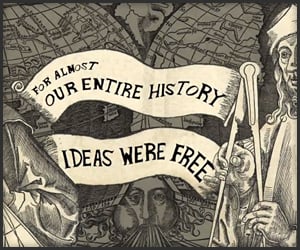As humans, people of every trait and character, simplify life by putting labels on things. There are signs and symbols that represent what they are. Well, those signs and symbols remind people of certain things, for say, stereotyping. It is without a doubt a culture based on the looks of individuals and the association they are based off, mainly appearance and social trends. Political attributes to nothing of the cause of what a person might be, but the group of people that are of the same ethnicity or societal means. Characters in the long poem, The Canterbury Tales, were not only defined by their class, but how they differentiated from their stereotypical social standing. Geoffrey Chaucer enabled these characters to act different and live a lifestyle with meaning. One character in particular stood out from the rest. He abides from his culture to make amends to a new one, an evolving one indeed. He was a monk who carried his own duties and righteousness by living outside of the monastery. Chaucer greatly emphasized the narrator to meet a different perspective of the monk, which of course meant that Chaucer made a great deal of deriving the necessary literary tools to explicate labels without labeling.
Chaucer's ideas weren't his original ideas for implementing a tale of characters. He took in account for an inspiration literary piece called Boccaccio's Decameron, which was basically the same set of plotting Chaucer used to explain his characters'.
All Chaucer did was remixed into his version, but in a simple Modern English format. Colloquial language is what Chaucer intended for, since he wanted to create something new out of something already created. Readers take in consideration that everyday talk and rabble rousing among words is what gets a conversation going, especially if its about putting a label on a certain character.
Understanding one another and each other's situations is the human right to learn new things everyday. The narrator is astounded by the presence of the monk. He's not the usual monk, but he is considered a monk by whatever the narrator thinks is worthy to be a monk-like person. Anyone can be different by whatever they carry. A burden at must, maybe, but a burden that can be changed quite quickly at the tale of a diversifying monk. This monk in Canterbury Tales just wanted to break his monastery ties and live a life where he can survive on his own and defend his property.
Assumptions only makes the person inevitable to remind oneself more than once. Chaucer was basically teaching his readers that, yes you can be these type of people, but you can also be another type of person, the one not seen in society by name calling. Questioning one's social status is best to be considered or reconsidered to the public of an ever so changing world.





No comments:
Post a Comment